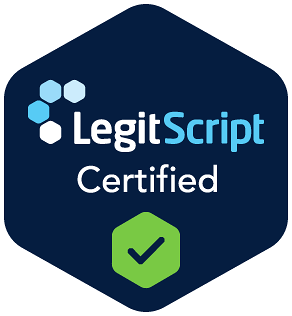In today’s interconnected world, the relationship between social media and addiction recovery is both complex and multifaceted. Social media platforms can become addictive, with their constant notifications and likes providing an addictive feedback loop. However, these platforms also offer invaluable support networks for those in recovery, helping to break down isolation and encourage positive behavior. As we continue to navigate the digital age, understanding these dynamics is essential. The question remains, can we harness the positive aspects of social media in recovery, while mitigating its addictive potential?
Understanding Social Media’s Role in Addiction
Unmasking the role of social media in addiction necessitates a thorough and empathetic approach. With the explosion of online communities, social media platforms have become a double-edged sword, offering both a sense of belonging and a potential pathway to addiction. At the crux of this phenomenon is social validation, a fundamental human need that has been amplified by the digital age. The euphoria felt when a post is liked or shared simulates the dopamine rush linked with addictive substances, leading to a cycle of posting and validation-seeking that can be difficult to break. Simultaneously, the online communities can act as enablers, normalizing substance use and addictive behaviours. Anonymity and lack of physical presence further exacerbate this, as individuals might feel less inhibited and more likely to engage in risky behaviours.
The omnipresence of social media plays a significant role. The constant access to these platforms leads to habitual use, which can evolve into addiction. This pervasive influence, coupled with the subtle reinforcement of addictive behaviour, makes social media a potent catalyst in the genesis and perpetuation of addiction. Understanding this complex interplay is the first step towards mitigating its impact.
The Influence of Social Media on Recovery
Remarkably, while social media can be a facilitator for addiction, it can also serve as an influential tool in the recovery process. The interactive nature of these platforms fosters a sense of community connection, vital for those in recovery. It allows individuals to share their experiences, goals, and struggles, thereby creating an environment of mutual understanding and support. The vast array of online resources available on social media plays a significant role in recovery. From educational posts on addiction to motivational stories of people who have successfully overcome their struggles, these resources provide valuable insights and inspiration, offering a diverse perspective on recovery.
However, it’s important to remember that while social media can aid recovery, it is not a substitute for professional help. It should be used as a supplementary tool, complementing traditional recovery methods. Programs like an intensive outpatient program provide a structured environment for recovery, ensuring a balanced approach. The key lies in leveraging the positive aspects of social media while being mindful of its potential pitfalls. Ultimately, the impact of social media on recovery largely depends on its purposeful and mindful use.
Harnessing Social Media for Sobriety Support
Capitalizing on the power of social media can markedly enhance sobriety support for those battling addiction. Online recovery communities offer invaluable peer support, enabling individuals to connect with others experiencing similar struggles, fostering a sense of camaraderie and mutual understanding. These virtual spaces can serve as a lifeline, providing an accessible and often 24/7 source of encouragement and guidance. Digital accountability platforms, another facet of social media, play a pivotal role in addiction recovery. They facilitate real-time tracking of progress, providing tangible evidence of sobriety milestones achieved, which can bolster motivation and self-esteem. Furthermore, they often incorporate a social component, allowing users to share their progress with supportive communities, thereby reinforcing commitment to sobriety through collective responsibility.

Final Thoughts
To summarize, the role of social media in addiction and recovery is multifaceted, driving addictive behaviours while simultaneously providing significant support for recovery. Mastery over this double-edged sword can greatly enhance one’s recovery journey, through the sharing of resources and experiences. However, caution is required to avoid its potential pitfalls. Further research is therefore imperative to maximize the positive aspects of social media while mitigating negative influences. If you or someone you care about is grappling with substance abuse, remember that support is within reach. At Bluecrest, we provide an intensive outpatient program customized to suit individual needs, fostering recovery and optimism. Our team of devoted professionals is dedicated to offering the guidance, support, and tools needed to navigate the path to sobriety.
Frequently Asked Questions
How Can I Protect My Privacy While Seeking Addiction Support on Social Media?
To protect your privacy while seeking addiction support on social media, consider creating private profiles. These limit who can view your content, providing a safety net. Additionally, engage with anonymous support groups; these often have strict privacy policies, protecting your identity. Always remember, though, to be mindful of what you share online. Even with these measures, complete privacy can never be fully guaranteed on social media platforms.
What Are Some Potential Triggers for Relapse on Social Media Platforms?
Potential triggers for relapse on social media platforms can include exposure to drug or alcohol-related content, interactions with individuals who still use substances, or encountering stress-inducing content. These relapse cues can incite emotional triggers, leading to cravings or thoughts of substance use. It’s essential for individuals in recovery to be aware of these risks and to implement strategies for managing their social media use to support their recovery journey.
Can Social Media Chatbots Provide Effective Addiction Recovery Support?
Social media chatbots can indeed provide effective addiction recovery support. Their effectiveness lies in their availability, providing immediate, round-the-clock virtual support. These chatbots can offer resources, coping strategies and even simulate peer support conversations. However, their efficacy depends on the individual’s receptiveness to virtual aid. Nonetheless, chatbots serve as valuable tools in the multifaceted approach to addiction recovery, acting as accessible, constant companions in the journey towards sobriety.
How Can I Identify and Avoid Misinformation About Addiction on Social Media?
Identifying and avoiding misinformation about addiction on social media can be challenging. Utilize fact-checking tools and cross-verify information with expert resources such as health professionals and reputable health websites. Be skeptical of anecdotal experiences and miracle cures. Always consult with a healthcare provider before making any decisions based on information found on social media.
What Strategies Can I Use to Create a Positive Online Environment for My Recovery?
Creating a positive online environment for recovery involves joining supportive communities that encourage positive engagement. It includes following accounts that share recovery stories and motivational content. Additionally, setting boundaries by using privacy settings and blocking sources of negativity is essential. Engaging in online therapy or counseling can also be beneficial.



